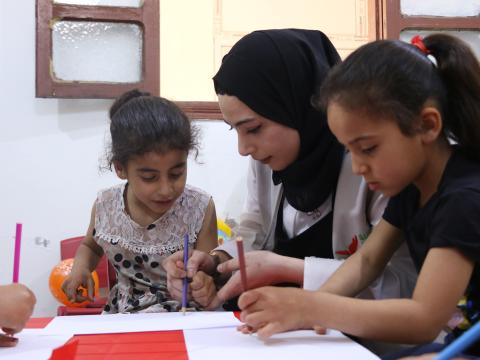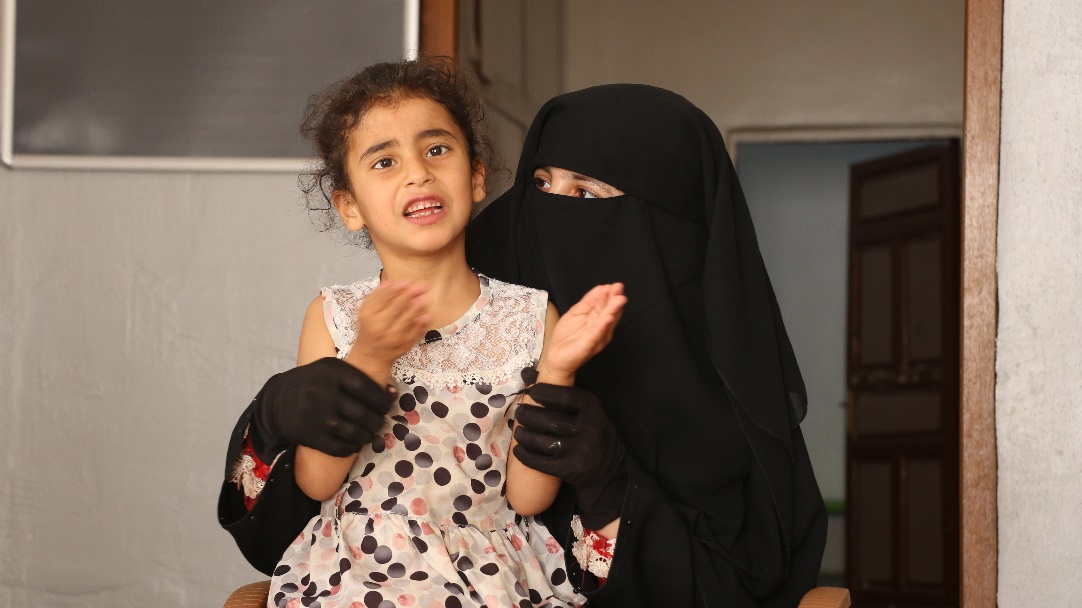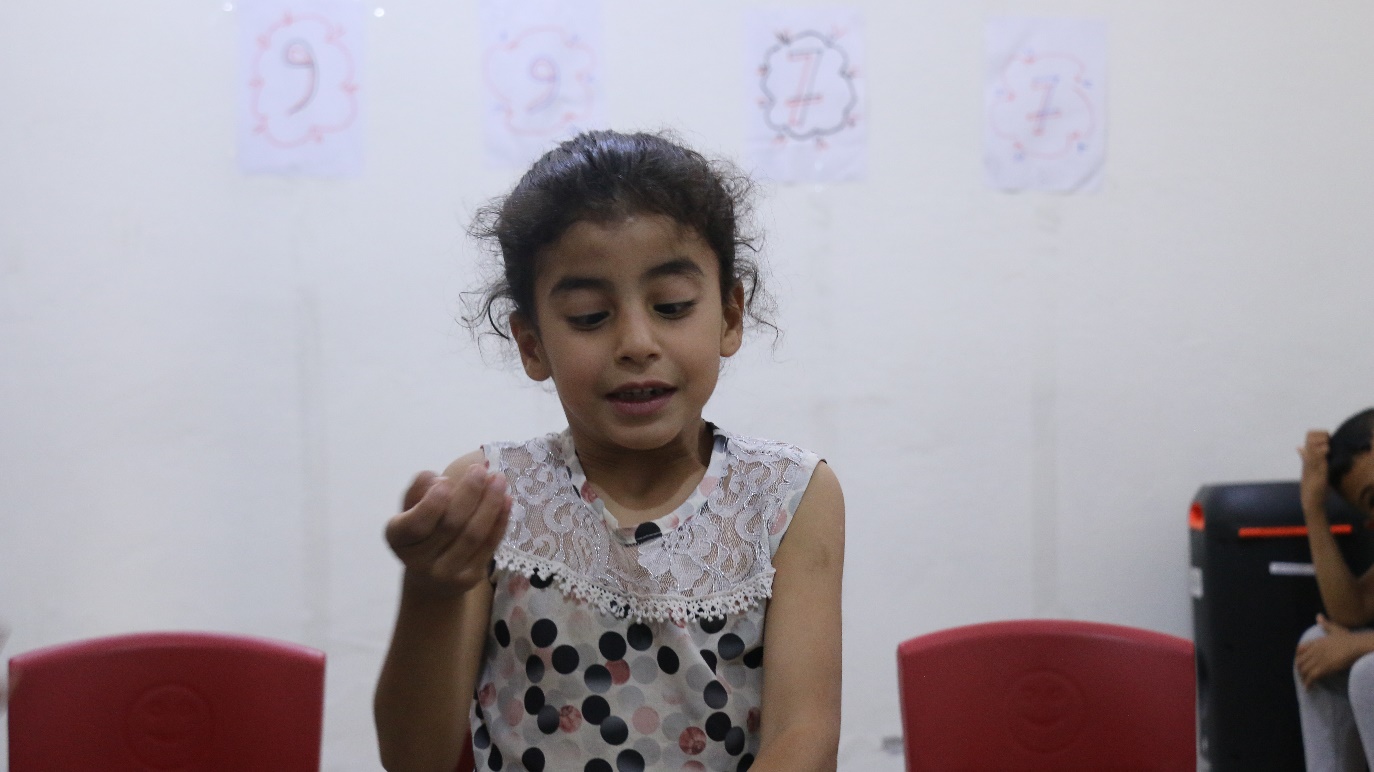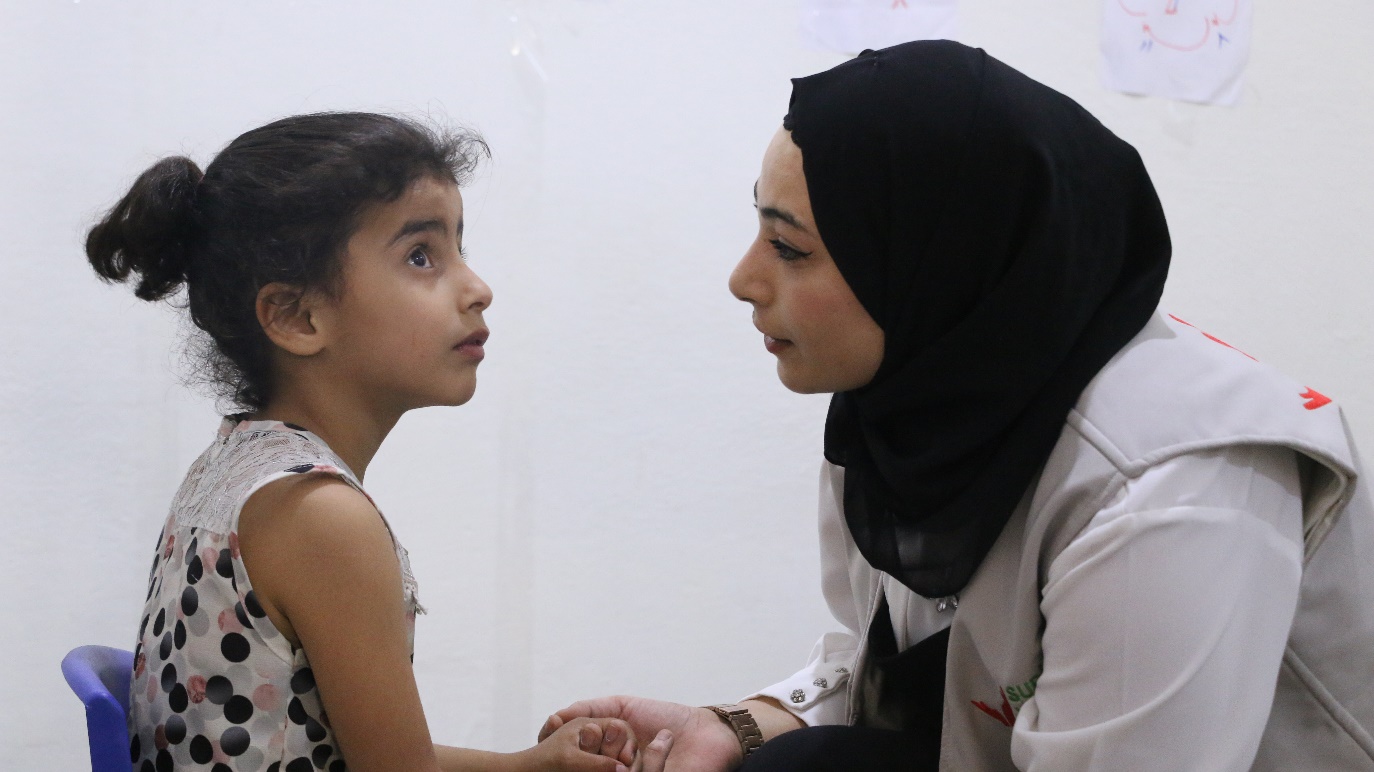A Melody for Zahra: Where Music Meets Healing

In one of the most isolated corners of north central Syria, where years of conflict have stripped life of its colours, a seven-year-old girl named Zahra* is rediscovering joy at the Child Protection Centre.

Zahra claps along to the music with her mother at the Child Protection Centre. World Vision Syria response partner
North central Syria remains a deeply underserved region, where access to healthcare, education, and protection services is severely limited, and daily needs continue to grow.
For families like Zahra’s, life has been an unending struggle. Born a healthy girl, her life changed dramatically when as an infant, she suffered a severe fever that caused convulsions and lasting brain damage.
Her development slowed: She struggled to speak, her steps were unsteady, and she lived in near isolation. The family was displaced after violence destroyed their rural village home. They resettled in Ras Al-Ain with little more than hope.
Zahra's father's part-time work as a porter can cover the family’s basic needs, but access to healthcare has remained out of reach.
Although Zahra was once scheduled for treatment in Turkey, the COVID-19 pandemic shut that door. Zahra's mother has only been able to secure a few rare visits to a neurologist. She remembers those difficult years with pain:
“Since her first months, I felt she was different. She didn’t laugh or play like other children. We tried to seek help, but the war and the high costs left us with no options. For so long, I lived in fear for her future.”

World Vision Syria response partner
In 2024, World Vision launched a multi-sectoral project in north central Syria to help strengthen the resilience of conflict-affected families. With the support of World Vision Germany and the German Federal Foreign Office, the Child Protection Centre in Ras Al-Ain became a safe haven for children like Zahra.
During a field visit, something unexpected happened: when a facilitator played a short piece of music, Zahra stopped pacing, stilled her restless movements, and smiled.
That smile became the key.
From then on, Zahra began attending structured psychosocial support sessions at the centre. Music, art, and group-play gave her new ways to express herself.
At first, she sat silently on the margins. Then, slowly, she began to clap, to sing, to paint. Over the weeks, her confidence blossomed.
Her mother describes the transformation with tears of joy:
“Before, she used to hit her siblings and refused to leave the house. Today, she runs to the door on her own, waiting eagerly for her sessions. She laughs, she sings… I never thought I would see this day.”
Zahra’s story is just one among many. Since early 2025, the Child Protection Centre in Ras Al-Ain has supported more than 1,580 children, helping them cope with trauma and rediscover their sense of self.
Through structured activities—from music and drawing to storytelling and group games—children are given safe spaces to heal and reclaim their childhoods.
One facilitator explains:
“In conflict zones, safe spaces for children are not a luxury—they are essential. Music and art allow them to express what words cannot. For Zahra, music opened a door to the world.”
Zahra’s journey reflects the resilience of Syria’s children and families, and the lasting change that’s possible when donors, humanitarian organisations, and local partners work hand in hand.

World Vision Syria Response partner, Action For Humanity
Her mother now advises the other parents:
“Do not punish your children if they are different. Understand them. Walk beside them. Sometimes, their differences are the beginning of a new path to healing.”
Today, Zahra’s laughter echoes once again, carried by music, compassion, and the unwavering belief that every child deserves the chance to shine.
Her smile is not just hers—it's a symbol of hope for hundreds of children across Syria still waiting for their own healing melody.
*Name changed to protect identity